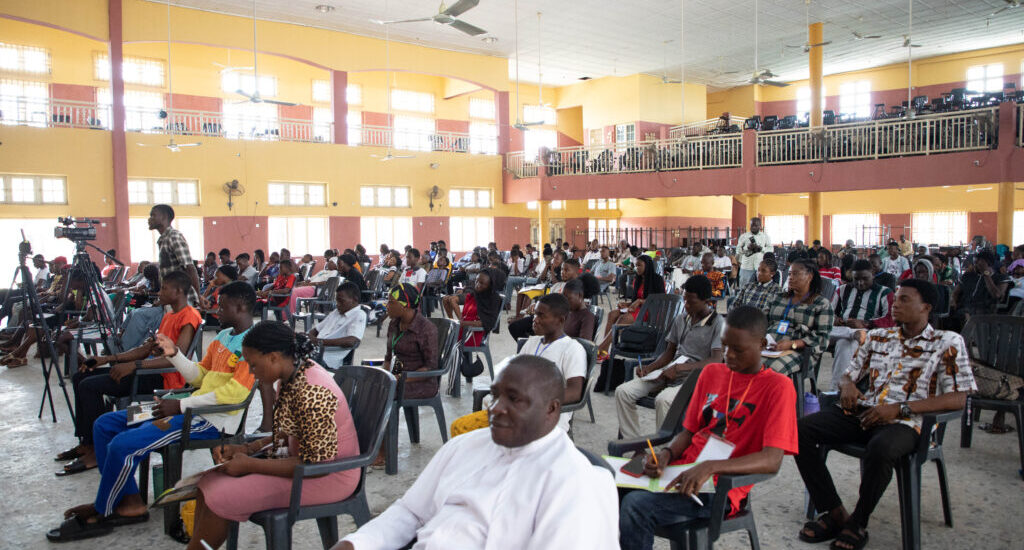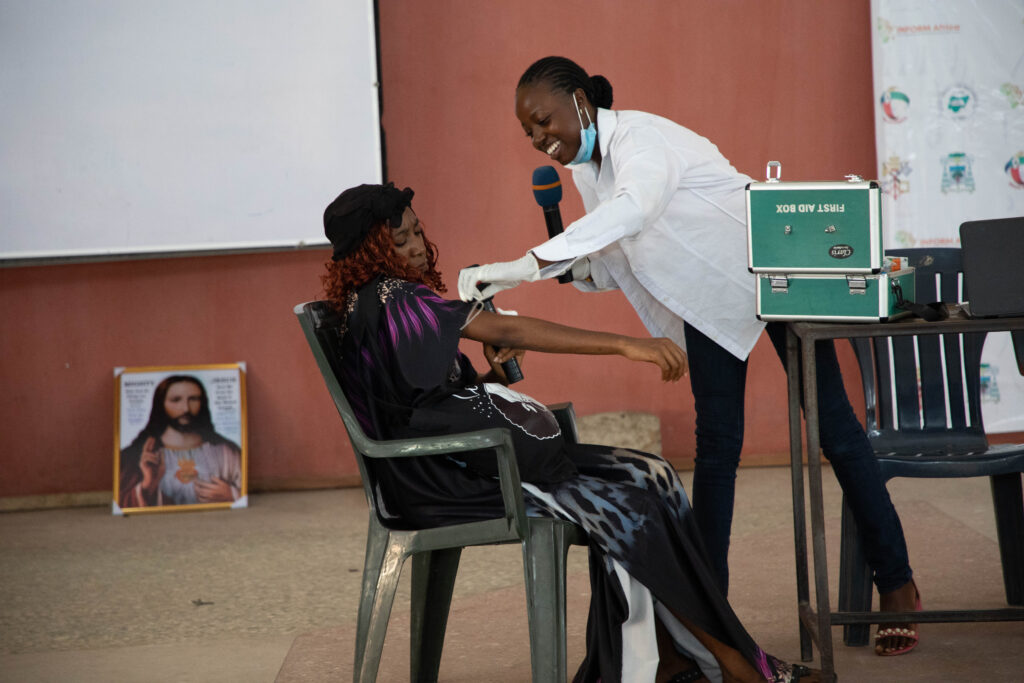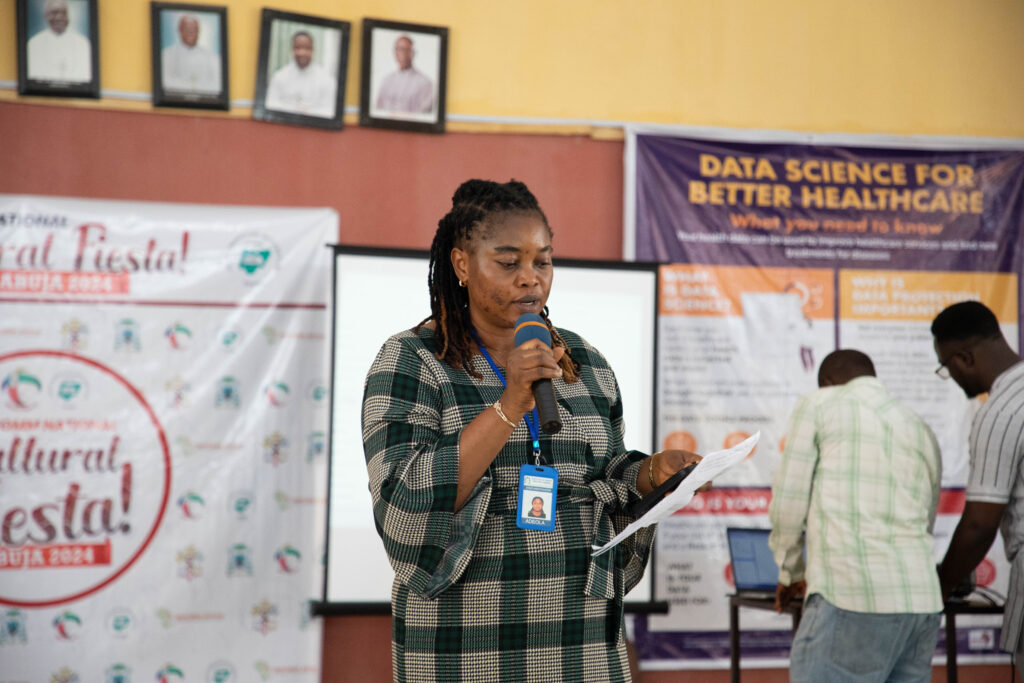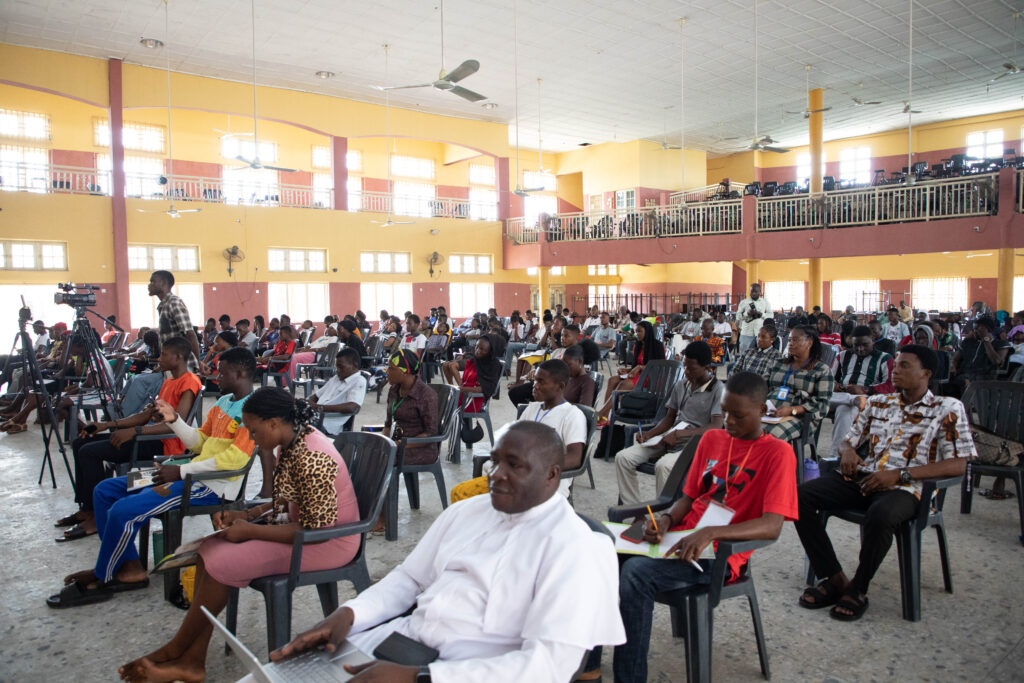- September 18, 2024
- Posted by: IHVN
- Category: Latest

The International Research Center of Excellence (IRCE) at the Institute of Human Virology Nigeria (IHVN) has partnered with The Young Missionary Movement (YOMM) of Nigeria to launch an initiative to equip young people from the 36 states of Nigeria with vital data science skills to advocate for HIV and COVID-19 prevention and management.
The event was part of community engagement activities under the INFORM Africa project and was themed, “Youth Data Science Champions: Empowering Young Leaders on the Importance of Data Science.” About 500 youths participated in the program which was held at Christ the King College in Gwagwalada. It featured a drama presentation, talks, and discussions.
Young Missionary Movement of Nigeria (YOMM) Lead Dr. Peter Adubi emphasized the event’s focus on empowering youth through data science education. The INFORM Africa Project leveraged on the YOMM annual National Youth Cultural Congress.
The feedback from the young people was overwhelmingly positive. Esene Anita appreciated the event’s storytelling aspect, which demonstrated how data can help control infections and aid government preparedness for future pandemics. Tersoo Ikpah, another participant said that the “Data Science and Visualization” workshop has taught how to effectively communicate data insights and create engaging narratives on health issues like HIV and COVID-19.
IHVN INFORM Research Hub Assistant Mrs. Adeola Ann Nicholas explained that the INFORM Africa Project aims to lay the groundwork for improved pandemic surveillance and response across Africa, particularly by exploring the interactions between COVID-19 and HIV.
Mrs. Nicholas said the project brings together a diverse team of experts in data science, epidemiology, geospatial statistics, and bioinformatics.
“This team will focus on research projects that investigate the relationship between SARS-CoV-2 and HIV-1 in Nigeria and South Africa. Key goals include establishing comprehensive data streams, developing geospatial tools for pandemic surveillance, and expanding data science capacity to enhance public health outcomes,” she said.



